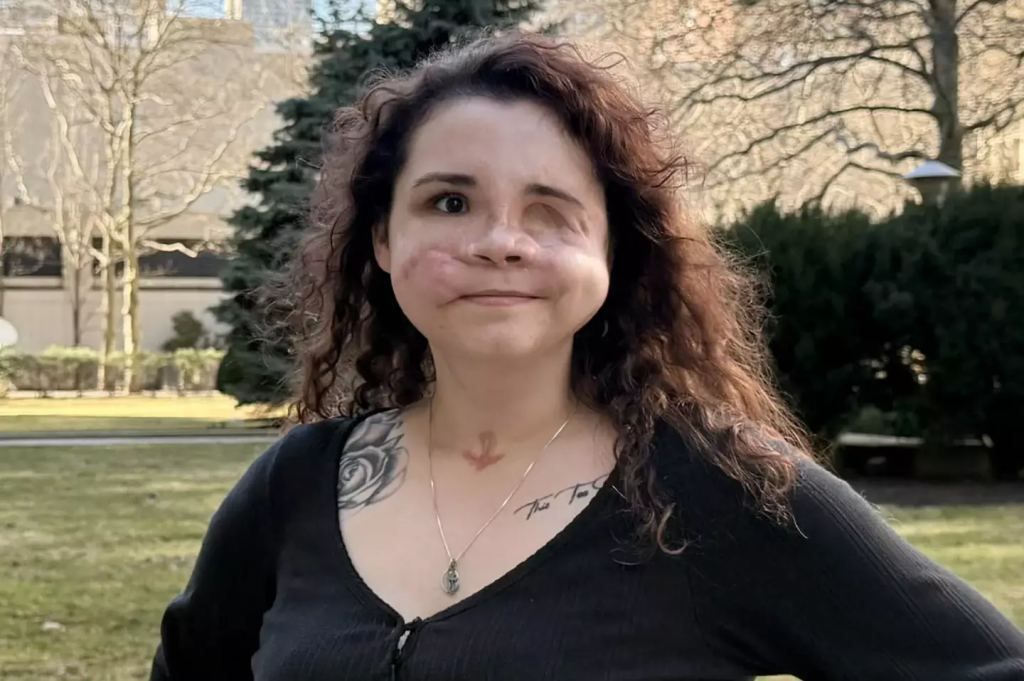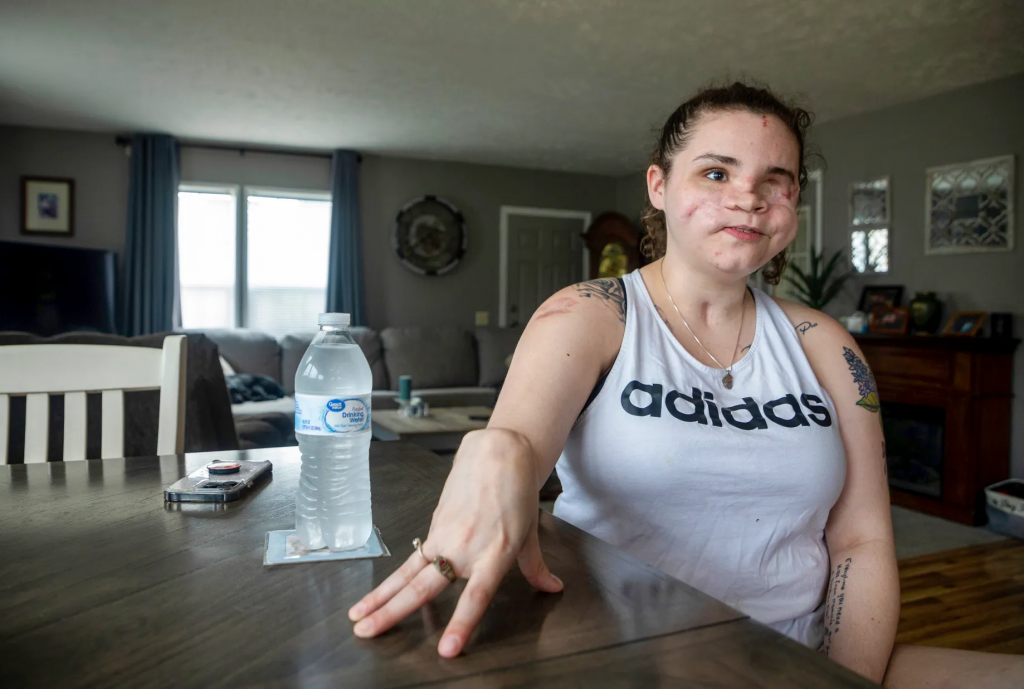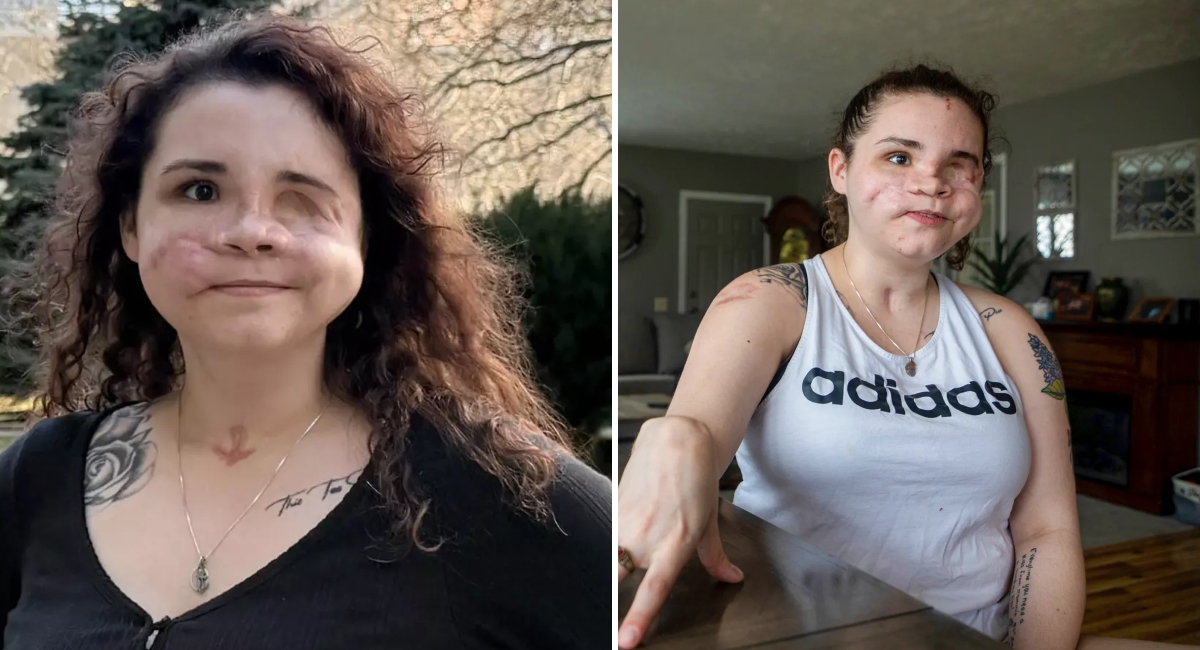Amedy Dewey, now 25, was shot in the face at 18 by her stepfather in a chilled Michigan car. Doctors said she had “less than 2 percent” chance of survival—but today she’s alive, speaking out, and inspiring hope. UNILAD covers her journey.
Her story began in 2018, when a competitive cheerleader and soccer player was struck by a bullet that ripped through her mouth and jaw. Tragically, her mother was killed and her stepfather took his own life in the same incident, Michael telling her she was unlikely to pull through.

“They told me ‘you won’t survive’—I survived. Now I want you to see the signs.”
Over the past seven years, Amedy has endured an astonishing **37 surgeries**, including a groundbreaking **fibula bone graft to rebuild her upper jaw** performed in November 2024. Thanks to NextGenFace and Northwell’s specialists, she can now take solid food for the first time since the shooting—grilled cheese sandwiches and bacon burgers included. People shares that milestone.
But Amedy’s fight wasn’t just physical—she was emotionally shattered. In her own words: “It was just surgery after surgery after surgery. I felt like I didn’t have a purpose.” The guilt of losing her mother compounded her pain. UNILAD quotes her candidly.
Her survival defied expectations, and with healing came purpose. Now pursuing a degree in trauma therapy, she’s turning her experience into advocacy—warning others about recognizing domestic abuse signs before it’s too late. “I want people to know when somebody is unstable… especially with firearms,” she told People magazine.
“If you see danger signs in your home, get out before it’s too late.”
Psychologists stress that trauma like hers often brings emotional reactions—fear, numbness, anxiety, anger—that are normal responses, not signs of weakness. As the National Center for Trauma Psychology notes, survivors handle these experiences in diverse ways, and all styles are valid parts of healing.
Amedy’s message is twofold: **recognize abuse early** and **survive with resilience**. After years of reconstructive surgeries and learning to eat and speak again, she recently celebrated being able to take a real bite of food—a “big moment” toward reclaiming her life. People emphasizes her triumph.
She now recalls warning signals from her stepfather—threats, aggression, obsession with firearms—and urges others not to ignore them: “I keep reopening these wounds… I don’t want anybody to suffer what I went through.” Her call extends beyond domestic violence to include mental-health and gun-safety awareness.

Her resilience echoes stories like those of Edith Langford, a shooting survivor who, according to The Guardian, overcame her trauma to become a therapist supporting others. Both remind us that survival isn’t just about living—it’s about finding purpose in pain.
In a powerful gesture, she uses her voice to shine a light on warning signs, and mental-health professionals applaud her bravery. Early intervention, seeking help, and community support are crucial, experts say. Psychology texts advise recognizing red flags and connecting survivors to care.
Her outlook is fierce yet hopeful: “Everything’s gonna be okay… you will get through this,” she told PEOPLE. That message—born from a moment with just 2% odds—is a rallying cry for survivors everywhere.
Amedy Dewey’s journey is a testament to human resilience, the power of reconstructive medicine, and the strength gained through trauma therapy. Her story reminds us that even in our darkest moments, there is possible light—and a mission to help others despite the scars.






